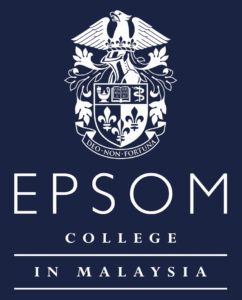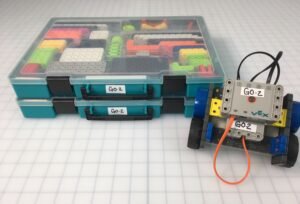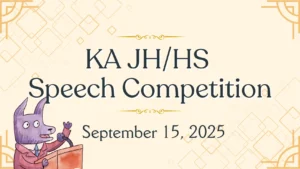Enjoy this short video snippet about Crimson Global Academy from our 2024 Expo.
Transcript
Crimson Global Academy
ISTimes Global: (00:00) Hello, we are with uh Takuma here at Crimson Global Academy. Welcome.
Crimson Global Academy: (00:05) Yeah, thank you for uh your this opportunity.
ISTimes Global: (00:08) Yeah, thank you. Uh we met uh uh Takuma in Osaka. They were very, very busy with a very strong interest in Crimson and it seems that the interest in Crimson uh has grown quite a bit since uh you’ve come to uh Japan. Can you please uh tell us more about that?
Crimson Global Academy: (00:27) Yeah, uh Crimson Global Academy is a fully online International School uh founded in 2019. So, uh we are still uh new school, but uh we uh were ranked uh fourth uh out of online high school, out of all uh American online high school. Ranked fourth. We have uh US high school diploma program, A levels and AP. And uh we have curriculums for uh students from uh seven years old to 18 years old. We also have uh ESO, which is an uh English enhancement class. Yeah. So we and uh because this is an online school, you know, students from all over the world can access to high qualified teachers and high quality uh classes and we have students from over six uh 60 countries. And uh yeah, even within Japan, we have more than uh 400 students. Yeah.
ISTimes Global: (01:28) And but your popularity has been growing and there’s been a lot of online schools trying to come into Japan. So, what do you think attracts families and parents to your uh program? How does it stand out?
Crimson Global Academy: (01:43) Oh yeah, uh because it is online, uh we, you know, easily can hire high qualified teachers from all over the world, including US, UK, and South Africa, New Zealand, Australia. So, yeah, literally all over the world. And that’s one thing. And another another one is uh you know, students who is busy from other things than academics like sports or being an actress or you know, students who wants to do something they’re interested in outside of the school. They if they go to a traditional school, they don’t have time for, you know, doing those things they’re interested in, but because it’s online and efficient uh and time efficient, they have uh plenty of time to do what they’re interested in. That’s one thing. Yeah.
ISTimes Global: (02:31) So that’s always what’s great about online is that flexibility.
Crimson Global Academy: (02:34) Yeah, yeah.
ISTimes Global: (02:35) So it seems like you bring the flexibility plus great talent from overseas. Um how does uh Crimson Global find great uh talent overseas. Everyone’s, you know, looking for them.
Crimson Global Academy: (02:50) How do Sorry?
ISTimes Global: (02:50) Um how does uh your school find great talent overseas uh teachers wise?
Crimson Global Academy: (02:57) How how do we find teachers? Uh because uh it is not traditional school and we, you know, uh different from uh traditional school, we don’t uh decide a curriculum based on age, but we decide curriculum they’re taking based on their uh English skills and academic skills. So, for example, if uh one is very uh uh good at math, they can, you know, accelerate their learning. So that teachers always find uh that kind of environment attractive where students can take curriculum based on their abilities. Also, we have uh advisors like uh New Zealand uh ex principal or uh principal who is an principal of uh Stanford Online high school in the States. So, some teachers are very uh sympathize with their uh the way of thinking about uh towards education. So, yeah, it’s more like we find teachers than uh they sympathize with our missions and they, you know, would like to work with us in Crimson. Yeah.
ISTimes Global: (04:17) Great. Last last question. Um for parents who might find maybe online education intimidating or they’re not really sure um about it. Um what do you what kind of advice do you have for them? What kind of recommendation? Is there a trial that you that you think that they should um try with your company?
Crimson Global Academy: (04:37) Is this social socializing wise?
ISTimes Global: (04:40) Maybe maybe socializing, maybe just uh um sometimes they might find that online might be some kind of barrier. It might be a little bit intimidating, but uh but uh what kind of advice you might want to give uh parents or maybe if you have a uh trial that you uh offer.
Crimson Global Academy: (04:59) Okay, uh about online classes, I always tell them uh not to worry about it because uh you know, uh during COVID, a lot of uh classes and uh education system uh turned into online system, but we started Crimson Global Academy even before uh COVID. Because we think it’s more efficient or more uh you know, more more efficient than physical school. So and uh the the classes gone on really interactively. Students always turn on their videos and mics and they can always, you know, jump into discussion. So, uh yeah, even if it’s online, they they can interact with uh other students and teachers very much. So, that’s one thing. And another is uh social life wise because uh you know, when the the academics and classes gets more efficient, they have more additional extra time to do what what they what they want to do like for example, uh playing soccer, playing sports, uh going to art classes or uh yeah, doing for example programming and uh through those activities they’re interested in, they can, you know, interact with uh maybe older students or younger students, not only with the same age students. So they can, you know, socialize outside of the school as well. Inside the school, we have platform like uh teams where they can, you know, discuss what they’re interested in. For example, uh there’s a channel in teams where they can, you know, talk about arts or we have online clubs like uh investment clubs, uh like uh web development club, volunteering club, uh art club, something like that where they can, you know, interact with other students from other countries.
ISTimes Global: (06:53) Yeah.
Crimson Global Academy: (06:53) So That’s great.
ISTimes Global: (06:54) Yeah. I think I I think parents don’t think of it that way, but there’s other ways that the students can socialize and with the flexibility and uh your uh talented teachers, it’s it seems like a very uh uh great opportunity for your kids to try. Thank you so much.
Crimson Global Academy: (07:13) Exactly. Thank you. thanks for your time.
ISTimes Global: (07:15) That was Crimson Global Academy. Please please try the program. Thank you very much.
Crimson Global Academy: (07:20) Thank you.
ISTimes Global: (07:22) We talked quite a bit about your full-time program, but I also heard that you have a part-time program as well. Can you uh talk about that a little bit?
Crimson Global Academy: (07:30) Yeah, as a part-time student, uh they can, you know, start from one subject. So, for example, we have APs. So those who go to uh normal Japanese school, and if they’re good at math, they take Calculus AB or Calculus BC, AP or, for example, statistics or AP economics, macroeconomics, microeconomics, something like that. So for elementary school students or junior high school students, if they want to, you know, uh strengthen their English skills, they take ESL classes where they can, you know, strengthen listening, speaking, reading, writing skills. So if uh, and even those those who go to international school, if they think their academics is not enough, they, you know, take primary or lower secondary or IGCSE classes to strengthen their um, for example, English, science or math skills. So, yeah, and you can start from one subject. So you can actually use our school as a Juku as well. Yeah.
ISTimes Global: (08:29) I was just um imagining when my own kids were taking high level uh math and sciences. Um there wasn’t a lot of opportunities for them to get that extra help. So, um I think that’s great that uh you can actually provide that. Wonderful.
Crimson Global Academy: (08:45) Yeah. Thank you.
ISTimes Global: (08:46) That was Crimson Global Academy. Come check it out.
About Crimson Global Academy
- Fully online international school founded in 2019
- Ranked 4th among American online high schools
- Offers US high school diploma, A levels, and AP programs
- Curriculum for students aged 7 to 18 years old
- English as a Second Language (ESL) program available
- Students from over 60 countries worldwide
- More than 400 students in Japan
- Flexible learning based on English and academic skills rather than age
- Highly qualified teachers from US, UK, South Africa, New Zealand, Australia
- Ideal for students pursuing sports, arts, or other extracurricular activities
- Offers part-time enrollment for single subjects
- Online clubs and social platforms for student interaction






